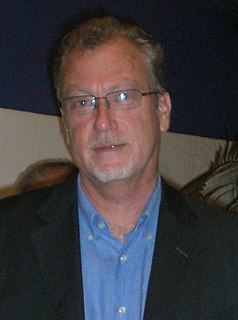A Quote by Henry Giroux
As young people make diverse claims on the promise of a radical democracy, articulating what a fair and just world might be, they are increasingly met with forms of physical, ideological and structural violence.
Related Quotes
There is a need for educators, young people, artists and other cultural workers to develop an educative politics in which people can address the historical, structural and ideological conditions at the core of the violence being waged by the corporate and repressive state and to make clear that government under the dictatorship of market sovereignty and power is no longer responsive to the most basic needs of young people - or most people for that matter.
What we are seeing in cities such as Chicago, Athens and other dead zones of capitalism throughout the world is the beginning of a long struggle for the institutions, values and infrastructures that make critical education and community the center of a robust, radical democracy. This is a challenge for young people and all those invested in the promise of a democracy that extends not only the meaning of politics, but also a commitment to economic justice and democratic social change.
We must realize that violence is not confined to physical violence. Fear is violence, caste discrimination is violence, exploitation of others, however subtle, is violence, segregation is violence, thinking ill of others and condemning others are violence. In order to reduce individual acts of physical violence, we must work to eliminate violence at all levels, mental, verbal, personal, and social, including violence to animals, plants, and all other forms of life.
If you're young and inexperienced you might accept what people tell you, that everything's going to be fine, it's okay. It's usually other young people saying that, who don't know any better. It's good to have a survival instinct because increasingly, especially in the whole Arab Spring sort of violence, you're mostly with young people who have not experienced what they're doing before.
Education as a democratic project always presupposes a vision of the future in its introduction to, preparation for, and legitimation of particular forms of social life. It is utopian in its goal of expanding and deepening the ideological and material conditions that make a democracy possible. As a moral and political practice, education produces the modes of literacy, critique, sense of social responsibility, and civic courage necessary to imbue young people with the knowledge and skills needed to enable them to be engaged critical citizens willing to fight for a sustainable and just society.
We should recall that during the Second World War and the Great Depression there was an upsurge in popular, radical democracy. In all over the world. It took different forms, but it was there, everywhere. In Greece it was in the Greek revolution, and so on. And it had to be crushed. In countries like Greece, it was crushed by violence. In countries like Italy, where the US forces entered in 1943, it was crushed by attacking and destroying the anti-German partisans and restoring the traditional order.
The young love and cherish people and places from which they receive the skills and the emotional support which enable them to make it in the world or to meet their basic human needs. The same people and places are often the first recipients of the frustration and anger--violence, vandalism, disrespect--of young people who are not making it well in the world. I suspect that this is the reason that personal and school property violence is increasing more rapidly than school burglary and dropout rates.
Until educators, individuals, artists, intellectuals and various social movements address how the metaphysics of casino capitalism, war and violence have taken hold on American society (and in other parts of the world) along with the savage social costs they have enacted, the forms of social, political, and economic violence that young people are protesting against, as well as the violence waged in response to their protests, will become impossible to recognize and act on.
Even in an intensely mediated world, in a world that offers at least the illusion of radical self-invention and radical freedom of choice, I as a novelist am drawn to the things you can't get away from. Because much of the promise of radical self-invention, of defining yourself through this marvelous freedom of choice, it's just a lie. It's a lie that we all buy into, because it helps the economy run.
People clearly want to believe that the world is a just and fair place. It provides them a sense of control and makes them psychologically comfortable. But believing that the world is a just and fair place causes people to not do enough to take care of themselves and to be unprepared for when it isn't so nice. So, people need to understand their tendencies to see the world as just and fair and then be realistic about the actual conditions in which they find themselves.































